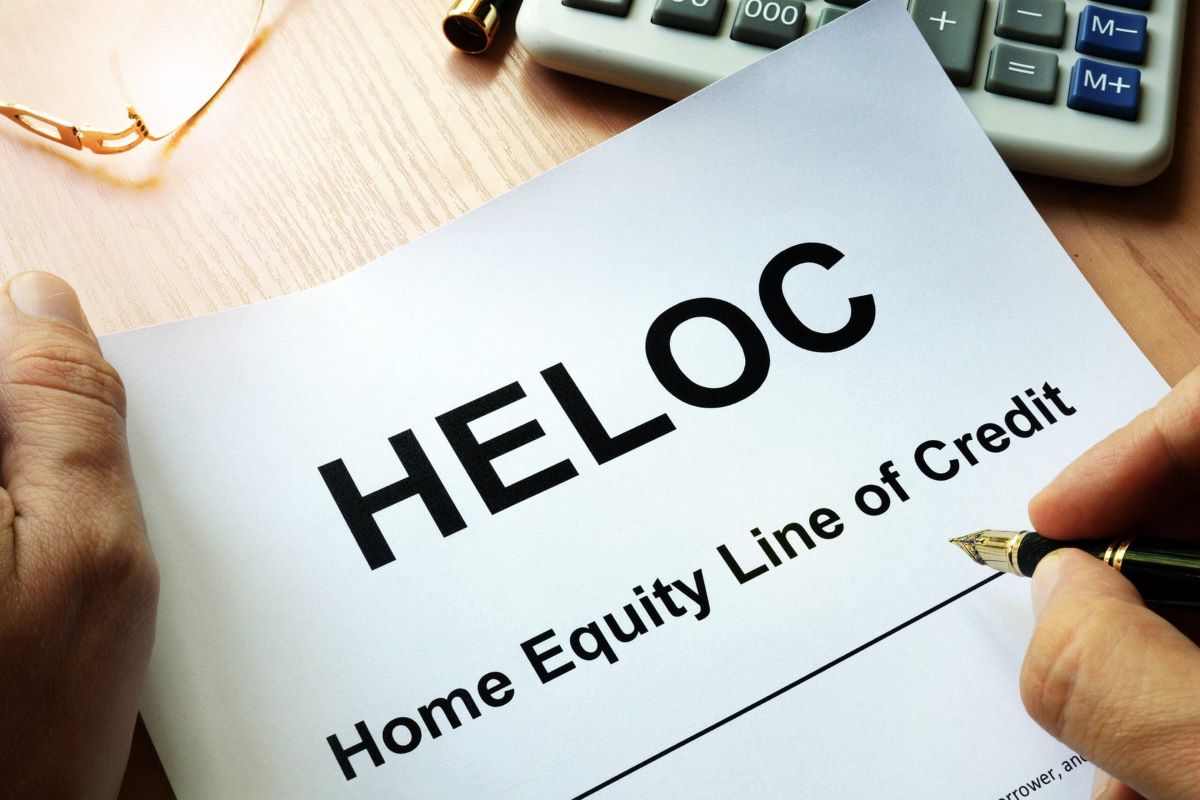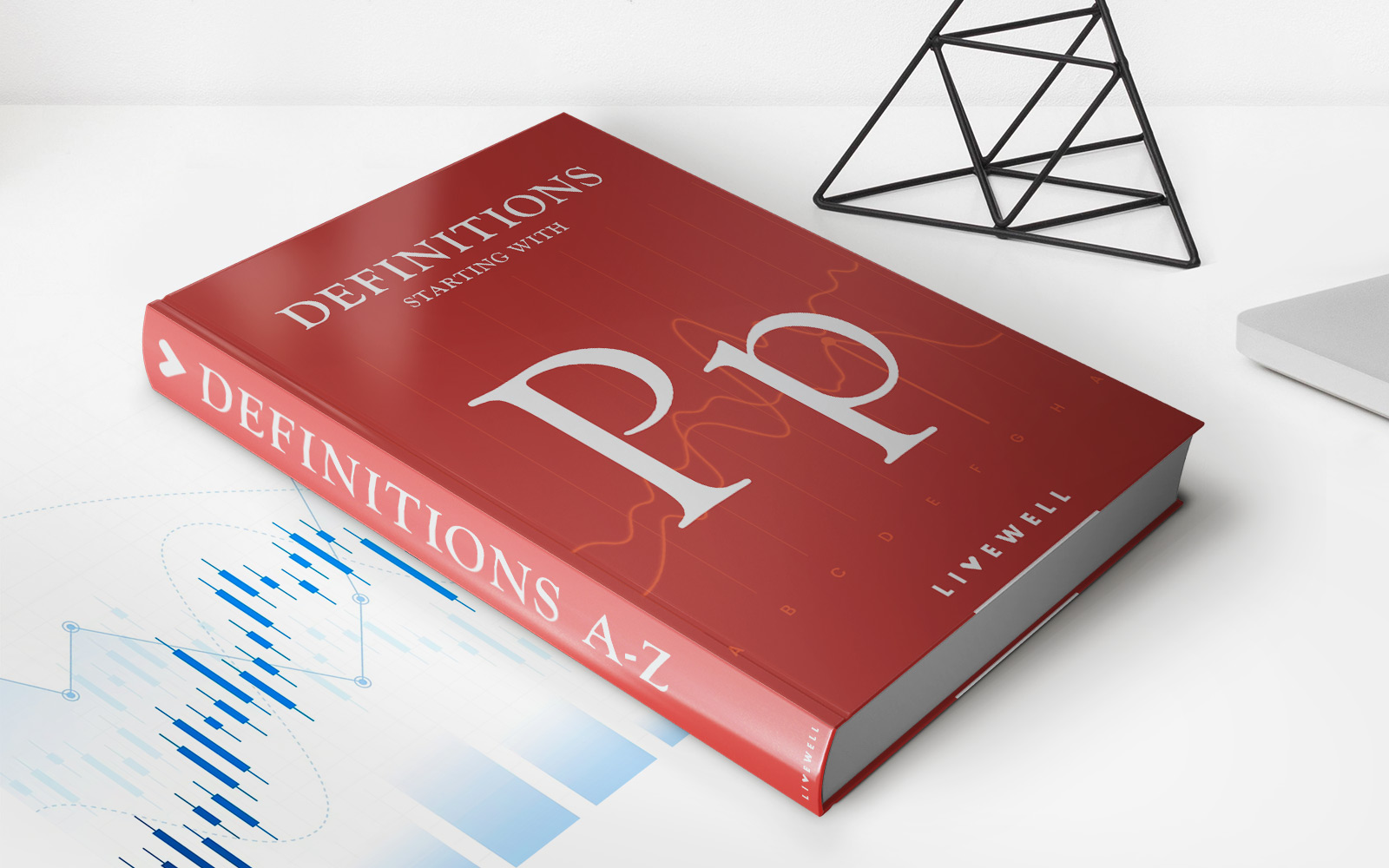

Finance
How Does Home Equity Work When Selling A Home
Published: January 15, 2024
Discover how home equity works when selling a home and the financial implications. Explore the key aspects of finance in the home selling process.
(Many of the links in this article redirect to a specific reviewed product. Your purchase of these products through affiliate links helps to generate commission for LiveWell, at no extra cost. Learn more)
Table of Contents
Introduction
When it comes to selling a home, understanding the concept of home equity is crucial. Home equity is the difference between the market value of your home and the outstanding balance on your mortgage. It represents the portion of your property that you own outright.
Home equity is an essential financial asset that can provide homeowners with options and opportunities. Whether you’re looking to finance a major renovation, pay off high-interest debt, or invest in a new property, having a clear understanding of how home equity works is key.
In this article, we will explore the concept of home equity in detail, including how it is calculated, factors that can affect it, and how it comes into play when selling a home. We will also discuss the benefits and potential downsides of using home equity, as well as provide tips on maximizing your home equity when preparing to sell.
So, whether you’re a homeowner looking to capitalize on your investment or a prospective buyer eager to navigate the real estate market, read on to gain valuable insights into the world of home equity and its implications when selling a home.
What is Home Equity?
Home equity refers to the value of ownership that a homeowner has in their property. It is the difference between the current market value of the home and the remaining balance on the mortgage. Essentially, it represents how much of the property you actually own outright.
When you make mortgage payments, a portion goes towards reducing the principal balance, while the remaining amount covers interest and other costs. As you continue to make payments, your equity in the property increases. Additionally, as property values appreciate over time, your equity can also grow.
Home equity can be seen as a type of forced savings. Unlike other assets, such as stocks or bonds, your property is something tangible. It can provide you with financial stability and flexibility. Home equity can be used for various purposes, such as financing home improvements, funding education expenses, or consolidating high-interest debts.
Understanding your home equity is crucial when considering major financial decisions, as it can significantly impact your overall wealth and financial goals. By knowing the value of your equity, you can make informed decisions about leveraging it to your advantage.
It’s important to note that home equity is not a static figure. It can fluctuate over time due to changes in the housing market, mortgage repayments, and any home improvements or renovations made to the property. Monitoring your home equity regularly is essential to have an accurate assessment of your financial situation and to make informed decisions about your property.
How Home Equity Works
Home equity works by accumulating as you make mortgage payments and as the value of your property appreciates. It represents the amount of ownership you have in your home and can be leveraged for various financial purposes.
Here’s how home equity works:
- Equity Accumulation: When you make monthly mortgage payments, a portion of the payment goes towards reducing the principal balance of your loan. As you pay down your mortgage, your equity in the property increases.
- Property Appreciation: Over time, properties generally increase in value due to factors such as inflation, improvements in the neighborhood, and market demand. This appreciation can further boost your home equity.
- Equity Calculation: To calculate your home equity, subtract the outstanding balance on your mortgage from the current market value of your home. For example, if your home is valued at $300,000 and you still owe $200,000 on your mortgage, your home equity would be $100,000.
Home equity can be accessed through various financial instruments, such as home equity loans or a home equity line of credit (HELOC). These allow you to borrow against the value of your home, using your home equity as collateral. The amount you can borrow will depend on factors such as your creditworthiness, income, and the loan-to-value ratio.
It’s important to remember that utilizing your home equity as a financial tool involves some risks. By borrowing against your home, you’re putting your property at stake. If you’re unable to repay the loan, you could potentially face foreclosure.
Additionally, it’s essential to consider the interest rates and terms of the loan when leveraging your home equity. Be sure to carefully evaluate your financial situation and consult with professionals, such as mortgage lenders or financial advisors, to make informed decisions.
Calculating Home Equity
Calculating your home equity is a straightforward process that involves subtracting the outstanding mortgage balance from the current market value of your property. This calculation can help you determine your financial stake in your home.
Here is a step-by-step guide on how to calculate your home equity:
- Determine your property’s market value: Start by obtaining an accurate assessment of your home’s current market value. This can be done through a professional appraisal, a comparative market analysis, or by consulting online resources such as real estate websites. Remember that market values can fluctuate, so it’s important to use recent and reliable data.
- Find your outstanding mortgage balance: Review your most recent mortgage statement or contact your lender to obtain the remaining balance on your mortgage loan. This figure represents the amount you still owe on your loan.
- Subtract the outstanding mortgage balance from the market value: Take the market value of your home and subtract the outstanding mortgage balance. The result is your home equity. For example, if your home is valued at $400,000 and you still owe $250,000 on your mortgage, your home equity would be $150,000.
It is important to note that the value of your home equity can vary over time due to changes in the housing market, mortgage payments, or any renovations or improvements made to the property.
Regularly tracking your home equity can provide valuable insights into your overall financial situation. It can help you assess your net worth, evaluate your borrowing capacity, and make informed decisions about leveraging your home equity for various purposes.
Keep in mind that while calculating your home equity is relatively straightforward, it is always recommended to consult with professionals such as real estate agents, appraisers, or mortgage lenders for an accurate and up-to-date assessment of your property’s value and equity.
Factors That Affect Home Equity
Several factors can influence the value of your home equity. Understanding these factors can help homeowners make informed decisions regarding their property and financial goals.
Here are key factors that can affect your home equity:
- Property Market Conditions: The overall health of the real estate market can impact the value of your home. Economic factors, supply and demand, and interest rates all play a role in determining market conditions.
- Location and Neighborhood: The location of your property, proximity to amenities, quality of schools, and neighborhood development can influence property values. Desirable locations and well-maintained neighborhoods tend to have higher property values and can positively impact home equity.
- Property Condition and Improvements: The condition of your home and any renovations or improvements you’ve made can affect its value. Upgrades such as kitchen remodels, bathroom renovations, or energy-efficient enhancements can increase the market value of your property and subsequently boost your home equity.
- Mortgage Payments: As you make regular mortgage payments, your outstanding loan balance decreases. Paying down your mortgage principal increases your home equity over time.
- Property Appreciation or Depreciation: Changes in property values over time can have a significant impact on home equity. Appreciation occurs when home values increase, while depreciation refers to a decrease in property value.
- Market Demand: The demand for properties in your area can influence home values and subsequently affect your home equity. High demand can drive up prices, while low demand can lead to a stagnant or even declining market.
It’s worth noting that some factors, such as market conditions and neighborhood developments, are beyond your control as a homeowner. However, you can take steps to maintain your property, make strategic improvements, and stay informed about market trends to maximize your home equity.
Regularly monitoring these factors, consulting with local real estate professionals, and staying updated on market trends can help you understand the dynamics that impact your home equity and make informed decisions about your property.
Home Equity When Selling a Home
Home equity plays a significant role when selling a home, as it directly impacts your financial outcome from the sale. Understanding how to leverage your home equity can help you maximize your profit and achieve your goals.
Here are key points to consider regarding home equity when selling a home:
- Increased Profit: Selling a home with substantial home equity can result in a higher profit. As you’ve paid down your mortgage and potentially experienced property appreciation, the sale proceeds can be used to bolster your financial position or be reinvested in another property.
- Down Payment for a New Home: Your home equity can be used as a down payment on your next property purchase. A higher equity amount allows for a larger down payment, which can lead to better mortgage terms and potentially lower interest rates.
- Reduced Closing Costs: Having significant home equity may enable you to cover the closing costs associated with selling a home, including agent commissions, transfer taxes, and other fees. This can ultimately save you money out of pocket during the transaction.
- Financial Flexibility: If you have a substantial amount of home equity, you may have the option to consider alternative selling methods, such as selling your home yourself (FSBO) or even renting it out for passive income. These options can provide you with greater control and potential financial benefits.
- Timing the Market: Monitoring your home equity can help you make strategic decisions about when to sell your home. If you’ve built a significant amount of equity, waiting for a favorable market condition or specific trends can potentially result in a higher sale price.
- Professional Guidance: Consult with a real estate agent or professional appraiser to determine the current market value of your home and estimate your home equity accurately. Their expertise can provide you with valuable insights when determining the optimal listing price.
It’s important to note that selling a home involves various costs, such as closing costs, capital gains tax (if applicable), and potential repair expenses. Consider these factors when calculating your true equity from the sale.
By understanding your home equity, exploring the available options, and seeking professional guidance, you can make informed decisions about selling your home and ensure that you maximize your financial outcome from the sale.
Understanding the Home Equity Line of Credit (HELOC)
A Home Equity Line of Credit (HELOC) is a financial tool that allows homeowners to borrow against the equity in their home. It operates as a revolving line of credit, similar to a credit card, with the home serving as collateral.
Here’s what you need to know about a HELOC:
- Accessing Funds: With a HELOC, you can access funds as needed, up to a predetermined credit limit. This gives you flexibility, as you can borrow funds for various purposes, such as home renovations, debt consolidation, education expenses, or emergencies.
- Variable Interest Rate: HELOCs typically have variable interest rates, meaning the rates can fluctuate over time. The interest rate is often tied to a benchmark, such as the prime rate, and may change periodically based on market conditions. It’s important to carefully review the terms and conditions of the HELOC to understand how the interest rates may impact your repayment.
- Repayment Options: HELOCs typically have two phases: the draw period and the repayment period. During the draw period (usually around 5-10 years), you can borrow funds and make interest-only payments. After the draw period ends, the repayment period begins, where you will need to repay both the principal and the interest, usually over a 10-20 year term.
- Flexibility and Control: With a HELOC, you have the flexibility to borrow and repay as needed, up to your credit limit. This gives you control over managing your finances and can be a useful tool for homeowners who have varying financial needs or want to maintain an emergency fund.
- Risks and Considerations: When considering a HELOC, it’s important to be aware of the potential risks. Using your home as collateral means that if you’re unable to make payments, you risk foreclosure. Additionally, the variable interest rates can lead to fluctuations in your monthly payments, so it’s essential to carefully budget and plan for potential rate increases.
Before opting for a HELOC, it’s advisable to consult with a mortgage lender or a financial advisor to understand the terms, costs, and potential risks associated with the loan. They can help you determine if a HELOC aligns with your financial goals and provide guidance on how to make the most effective use of the funds.
Remember, a HELOC is a financial tool that should be used responsibly and with a clear repayment strategy in mind to avoid falling into unnecessary debt and to protect your home equity and financial well-being.
Pros and Cons of Using Home Equity
Utilizing your home equity can provide you with financial opportunities and flexibility. However, it’s important to weigh the pros and cons before deciding to tap into your home equity. Here are some key considerations:
- Pros:
- Access to Funds: By using your home equity, you can access a significant amount of money for various purposes, such as home improvements, education expenses, or debt consolidation.
- Potentially Lower Interest Rates: Loans secured by home equity often come with lower interest rates compared to unsecured loans, such as personal loans or credit cards. This can result in significant interest savings over time.
- Tax Benefits: In some cases, the interest paid on a loan with home equity may be tax-deductible, potentially reducing your overall tax liability. Consult with a tax professional to understand the specific tax implications in your situation.
- Financial Flexibility: Leveraging your home equity provides you with financial flexibility, allowing you to pursue other investment opportunities, consolidate high-interest debt, or handle unexpected expenses.
- Potential for Property Appreciation: By investing your home equity in another property or making home improvements, you may potentially increase the value of your property, leading to further equity growth.
- Cons:
- Risk to Homeownership: Using your home equity as collateral means that if you’re unable to make the loan payments, you risk losing your home through foreclosure.
- Costs and Fees: Using home equity can involve various costs, such as closing costs, application fees, and potential appraisal or legal fees. Be sure to consider these expenses when evaluating the overall cost of borrowing against your equity.
- Potential for Negative Equity: If property values decline, you may end up owing more on your mortgage and home equity loan than what your home is worth, a situation known as negative equity. This can limit your options if you need to sell or refinance your home.
- Variable Interest Rates: Some home equity loans have variable interest rates, which means your monthly payments can change over time. Be prepared for potential rate fluctuations and consider how this may impact your budget.
- Reduced Home Equity: By borrowing against your home equity, you reduce the amount of equity you have in your property, which may impact your financial position in the long term.
Considering these pros and cons is essential to ensure that using your home equity aligns with your financial goals and risk tolerance. It’s recommended to carefully evaluate your financial situation, consult with professionals, and develop a repayment plan before tapping into your home equity.
Tips for Maximizing Home Equity When Selling a Home
When selling a home, maximizing your home equity can help you secure a higher sale price and increase your financial outcome. Here are some tips to consider:
- Curb Appeal: Enhance your home’s exterior to create a positive first impression. Simple tasks like maintaining the lawn, cleaning the driveway, and adding fresh paint can make a significant difference.
- Interior Updates: Make strategic updates and repairs to attract buyers. Focus on areas that potential buyers value the most, such as kitchens and bathrooms. Consider fresh paint, new fixtures, or minor renovations to increase your home’s appeal.
- Declutter and Stage: Remove personal items, excess furniture, and clutter to create a clean and spacious atmosphere. Consider professional staging to showcase your home’s potential and help buyers visualize themselves living in the space.
- Pricing Strategy: Price your home competitively based on recent comparable sales in your area. Overpricing can deter potential buyers, while underpricing may lead to missed opportunities. Work with an experienced real estate agent to determine the optimal listing price.
- Marketing and Exposure: Ensure your home reaches a broad audience by utilizing effective marketing strategies. Professional photography, online listings, virtual tours, and open houses can help generate interest and attract qualified buyers.
- Maintain Your Home: Keep up with regular maintenance and repairs to demonstrate that your home has been well-cared for. Address any issues or potential red flags before listing your property.
- Negotiation Skills: Work with a skilled real estate agent who can navigate negotiations and advocate for your best interests. They can help secure the most favorable terms and conditions during the sales process.
- Timing the Market: Consider market trends and seasonality when determining the best time to sell your home. A seller’s market with high demand and low inventory can potentially lead to multiple offers and higher sale prices.
- Showcase Energy Efficiency: Highlight energy-efficient features or upgrades in your home, such as solar panels, energy-efficient appliances, or insulation. These features can attract environmentally-conscious buyers and potentially increase your home’s value.
- Provide Documentation: Gather all relevant documentation, such as renovation records, permits, and warranties, to showcase the value and quality of your home. This can give buyers confidence and help justify your asking price.
Remember, maximizing your home equity requires careful planning, attention to detail, and professional guidance. Working with an experienced real estate agent who understands your local market can make a significant difference in achieving the highest possible sale price.
By implementing these tips and positioning your home in the best possible light, you can enhance your home equity and increase your financial outcome when selling your home.
Conclusion
Understanding home equity is essential for homeowners looking to make the most of their property’s value, especially when selling. Home equity represents a significant financial asset that can provide opportunities for renovations, debt consolidation, or investment purposes.
In this article, we explored the concept of home equity and how it works. We discussed the calculation of home equity, factors that can affect it, and the implications of home equity when selling a home. We also delved into the Home Equity Line of Credit (HELOC) and the pros and cons of using home equity.
Maximizing home equity when selling a home involves careful consideration of factors such as curb appeal, interior updates, pricing strategy, and effective marketing. By following these tips, homeowners can attract potential buyers, negotiate favorable terms, and secure the highest possible sale price.
It’s important to approach the use of home equity with caution and to consult with professionals such as real estate agents, mortgage lenders, and financial advisors to ensure it aligns with your financial goals and risk tolerance. Utilizing your home equity responsibly can provide you with financial flexibility and potential long-term benefits.
In conclusion, understanding and leveraging home equity can be a valuable tool in achieving your financial objectives. By staying informed, making strategic decisions, and seeking professional guidance, you can maximize your home equity and make the most of your investment when selling your home.














